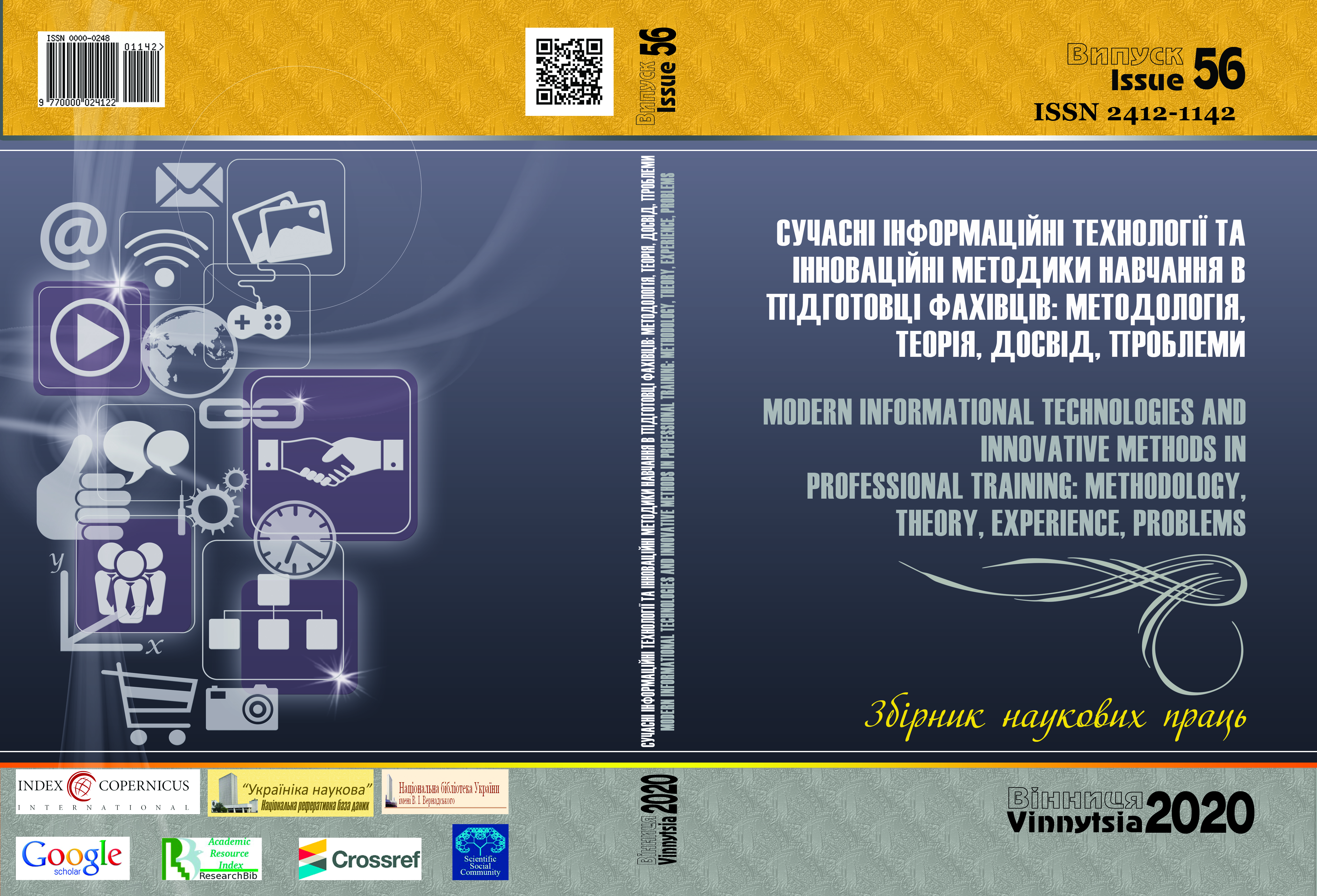PEDAGOGICAL CONDITIONS OF PROFESSIONAL COMPETENCE’S FORMATION OF EXPERTS IN T OURISM IN THE PROCESS OF STUDYING ENGLISH
DOI:
https://doi.org/10.31652/2412-1142-2020-56-192-197Słowa kluczowe:
professional competence, pedagogical conditions, professional training, tourism industry, foreign language, tourist experts, experimental verification, business game, positive motivationAbstrakt
On the base of analysis of pedagogical and psychological literature and practical experience of
training experts in tourism the article concludes that the professional competence`s formation of specialists
in the sphere of tourism at a high level has become an indicator of life activity development.
It is proved that the professional competence of the tourism sphere specialist are decisive in such areas as:
planning (goal setting, task specification, action planning and resource pre-accounting); management of
subordinates (formation of organizational structure, definition of functions of each employee, organization
of self-control system); control (activity monitoring, problem identification and resolution); developing
staff competencies and motivating them to succeed.
On the base of our own research, pedagogical conditions for the formation of professional competence of
experts in tourism have been determined (formation of positive motivation of students to study English due
to professional direction of their content; 2) the usage of distance education means for students’ individual
work; 3) the fulfilment of classroom activities with problematic and creative educational tasks by using
web-quests; 4) the development of students’ professional and personal traits in the process of business
games). The effectiveness of pedagogical conditions` application in the educational process has been
proved.
In the paper, we have identified the pedagogical conditions and the methods of their implementation and
have proved that they contribute to many factors, namely: deepening of knowledge about the functional-
stylistic system of a foreign language; mastering the norms of speech behavior in different spheres and situations of communication and improving the skills and communication skills in the scientific and official
business fields.
The article also analyzes the importance of foreign language for professionals in the tourism industry. The
experimental verification of the method of pedagogical conditions` implementation of professional
competence formation has been described.
Pobrania
Bibliografia
Boichuk A.P. Pedahohichni umovy profesiinoi pidhotovky maibutnikh ahentiv z orhanizatsii turyzmu
u profesiino-tekhnichnykh navchalnykh zakladakh: dys. ...kandydata ped. nauk : 13.00.04 /
Khmelnytskyi nats. un-t. Khmelnytskyi, 2018. 356 s. (in Ukrainian).
Halytska M. M. Formuvannia u studentiv vyshchykh navchalnykh zakladiv sfery turyzmu hotovnosti
do inshomovnoho spilkuvannia: dys. .... kandydata ped. nauk : 13.00.04 / Nats. ped. un-t im. M.
Drahomanova. Kyiv, 2006. 286 s. (in Ukrainian).
Zemlina Yu. V. Orhanizatsiia eksperymentalnoi roboty z formuvannia profesiinoi hotovnosti
maibutnikh fakhivtsiv z turyzmu. Suchasni informatsiini tekhnolohii ta innovatsiini metodyky
navchannia u pidhotovtsi fakhivtsiv : metodolohiia, teoriia, dosvid, problemy. 2013. Vyp. 35. S. 247-
(in Ukrainian).
Lozovetska. V. T. Teoretychni i praktychni zasady zastosuvannia kompetentnisno-diialnisnoho
pidkhodu u pidhotovtsi fakhivtsia turyzmu. Turystychna osvita v Ukraini: problemy i perspektyvy :
zb. nauk. pr. K.-Tonar, 2007. Vyp. 1. S. 28-35. (in Ukrainian).
Fedorchenko V. K. Teoretychni ta metodychni zasady pidhotovky fakhivtsiv dlia sfery turyzmu:
monohrafiia. Kyiv, 2004. 471 s. (in Ukrainian).
Khmiliarchuk N. S. Pedahohichni umovy orhanizatsii navchalnoi praktyky maibutnikh menedzheriv
turystychnoi sfery: dys. ...kandydata ped. nauk : 13.00.04 / Vinnytskyi derzh. ped. un-t im.
M. Kotsiubynskoho. Vinnytsia, 2008. 266 s. (in Ukrainian).
Kvartalnov V. A. Teoriya i praktika turizma: uchebnik. Moskva, 2003. 672 s.
Samokhval O. O. Ukrainski realii v umovakh hlobalizatsii mizhnarodnoho rynku turystychnykh
posluh. Visnyk Lvivskoho instytutu ekonomiky i turyzmu : zb. nauk. st. redkol. : I. O. Bochan ta in...
Lviv : LIET. 2017. No 12. S.19-27. (in Ukrainian).
Fomenko N. A. Pedahohika vyshchoi shkoly: metodolohiia, standartyzatsiia, turystska osvita. Kyiv,
215 s. (in Ukrainian).
Voinarovska N.V., Monderna E. Promoting Personal Motivation within Professional
Education. Journal of Educational and Social Research. 2019. No 9 (2), P. 1-7. (in English).
Zamkova N. L. Formuvannia profesiinykh yakostei maibutnikh menedzheriv zovnishnoekonomichnoi
diialnosti u protsesi vyvchennia inozemnykh mov : avtoref. dys. na zdobuttia nauk. stupenia kand.
ped. nauk : 13.00. 04. Kyiv, 2005. 20 s. (in Ukrainian).
Cherniy G. Language learning internrt technologies for future specialist of tourism. Scientific Letters
of Academic Society of Michal Baludansky. Kosice, 2013. Vol. 1. No. 2. P. 173-174. (in English).
Bondar N. D. Formuvannia kliuchovykh kompetentnostei maibutnikh menedzheriv sfery turyzmu v
protsesi vyvchennia humanitarnykh dystsyplin: dys. ...kandydata ped. nauk : 13.00.04 / Vinnytskyi
derzh. ped. un-t im. M. Kotsiubynskoho. Vinnytsia, 2016. 262 s. (in Ukrainian).
Bakshaeva N. A. Psykholohyia motyvatsyy studentov : uchebnoe posobye. Moskva, 2006. 184 s.
(in Russian).
Pobrania
Opublikowane
Numer
Dział
Licencja
Prawa autorskie (c) 2021 Наталія Бондар

Utwór dostępny jest na licencji Creative Commons Uznanie autorstwa 4.0 Międzynarodowe.





